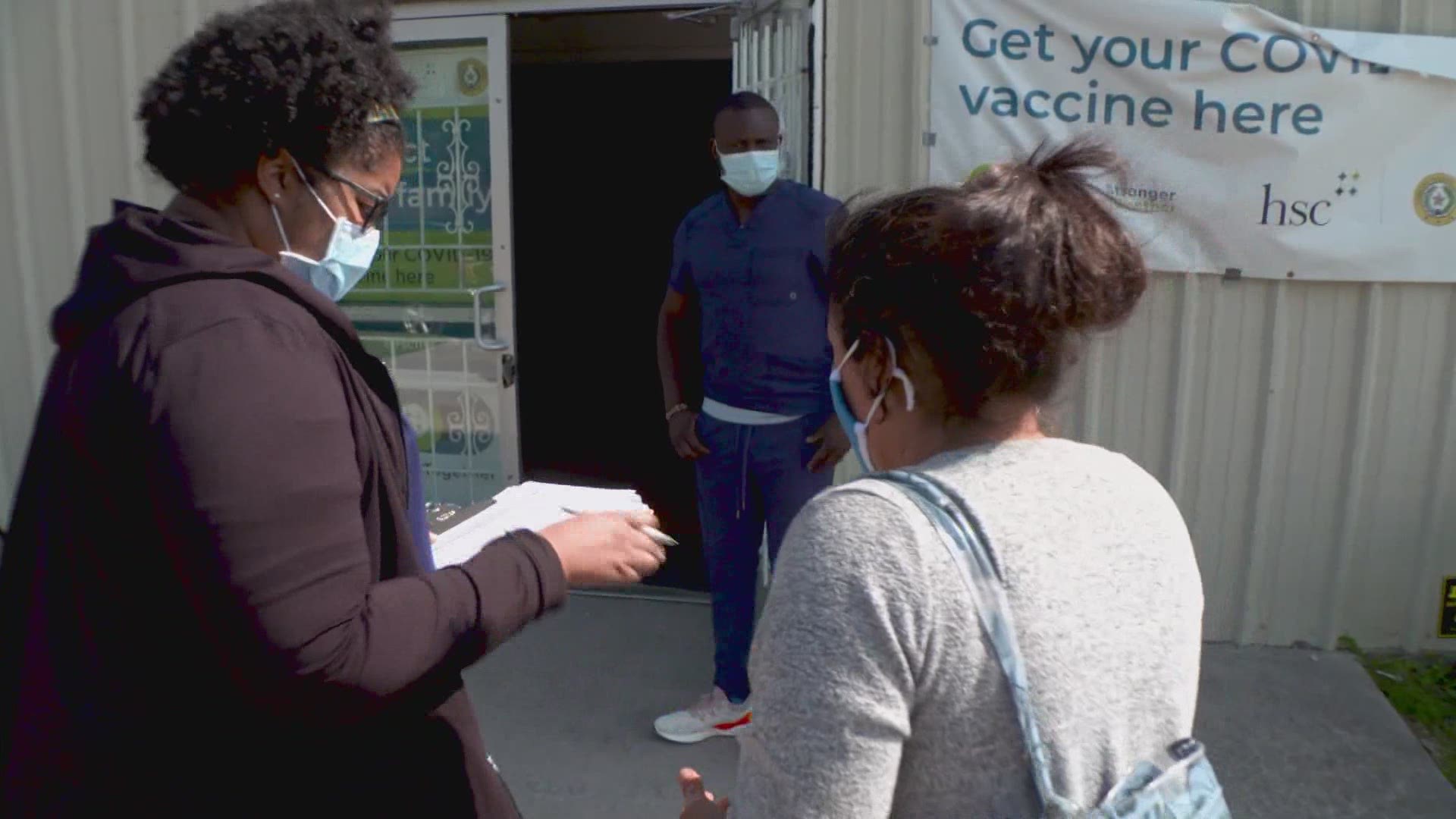FORT WORTH, Texas — Demand for COVID-19 vaccines has fallen, while just 35% of Texans have received at least one dose.
Fort Worth’s Stop 6 neighborhood around the Brighter Outlook vaccine center set up by UNTHSC has one of North Texas’ highest COVID-19 death rates.
Rev. Bruce D. Datcher leads Brighter Outlook and is the pastor at neighboring Ebenezer Missionary Baptist Church.
Datcher has deleted 25 friends from his phone who passed due from the virus.
“A loss of life is always tough, especially to a disease that’s hard to fight,” he said.
The pastor’s message to anyone who will listen is to get vaccinated.
“Similar to preaching the gospel, we must continue to tell the good news,” he said. “All we can do is tell and keep telling the story.”
The lines outside the center just weeks ago have faded. Demand statewide has plummeted.
Tuesday, the state reported around 57,000 people got a first dose, the lowest count since February 24, when the state was still getting caught up on vaccine shipments delayed by the winter storm.
Dr. James McDeavitt is the Dean of Clinical Affairs at Baylor College of Medicine and said the data shows a clear benefit of taking a COVID-19 vaccine.
“The risk from the vaccines is far, far, far less than the risk from COVID-19, so we just need to keep beating that drum,” he said.
According to CDC data, 86 million people have been fully vaccinated. As of April 15, 263 were later hospitalized due to COVID.
Sixty-five total people, of the 86 million who were fully vaccinated, later died of COVID-19. For comparison, at least 4,185 Americans have died of COVID-19 in the past week.
Datcher said he’s often asked, mostly by younger adults, what’s in the vaccine. He responds by asking how often someone reads Tylenol or Zyrtec ingredients.
“Very rarely do we question the doctor to give us all the ingredients, so sometimes we have to trust science,” he said.
McDeavitt said any side effects, another common concern, likely would’ve shown up already.
“I cannot think of an example where you are a year or two out and suddenly you start to develop long term effects from a vaccination,” he said.
He worries that the Johnson & Johnson pause could lead to fewer people getting vaccines but says it’s a sign the regulatory system is working.
The CDC reported six women who received the J&J vaccine, out of 7 million went on to have serious blood clots.
McDeavitt said by contrast 25-35% of people hospitalized with COVID-19 develop blood clots.
He said to talk to friends and family and share the evidence but stay respectful in conversations.
“If we’ve learned anything from this year, shouting at each other doesn’t solve any problems, doesn’t bring people closer together,” he said.
With variants spreading, there’s no exact number for a vaccine level, but health officials said they don’t just save lives but are the key for life as normal.
“If we want to get back together for Thanksgiving, Christmas and spend time together, family vacations, we’re going to have to take this shot,” said Datcher.

